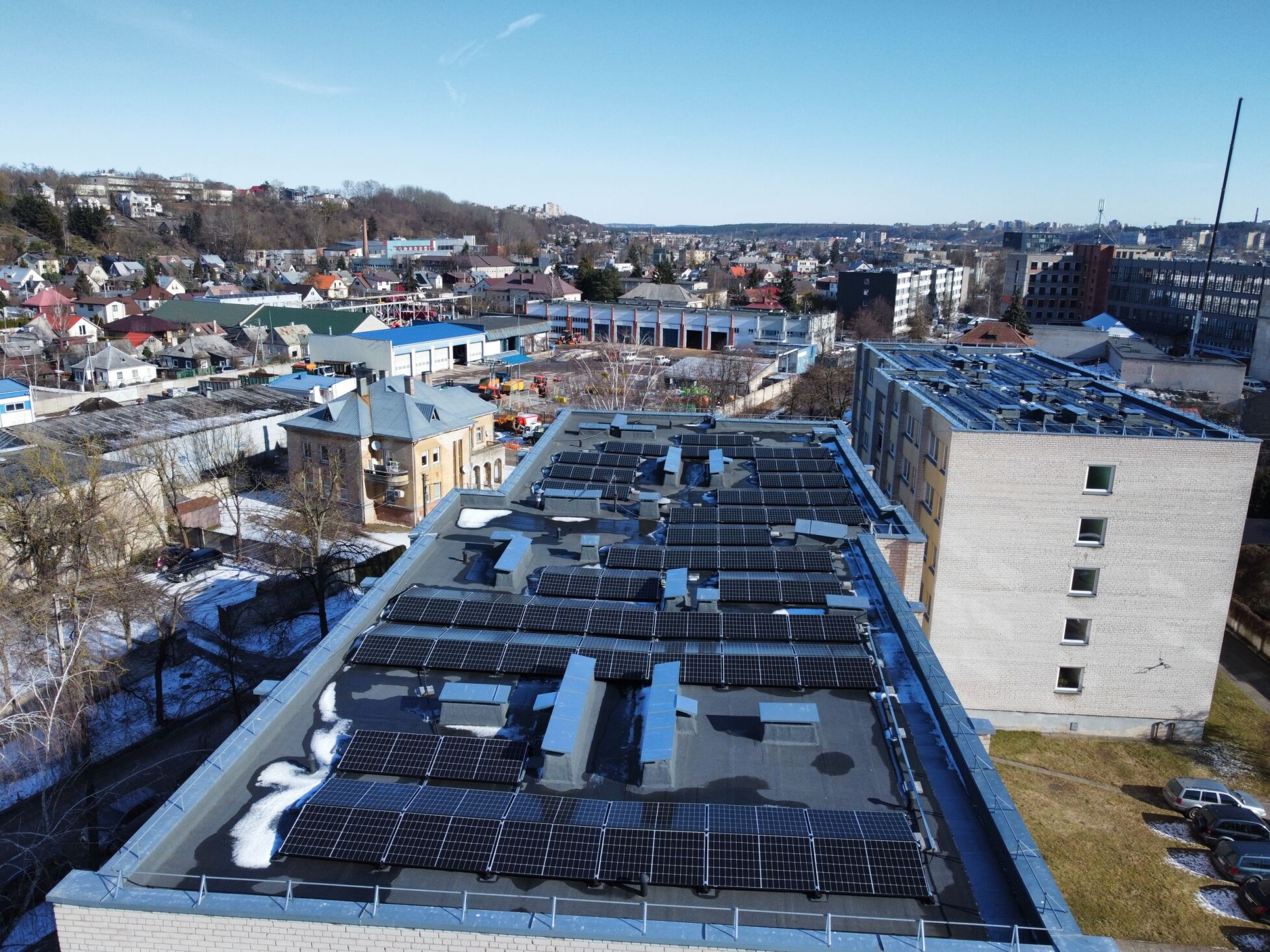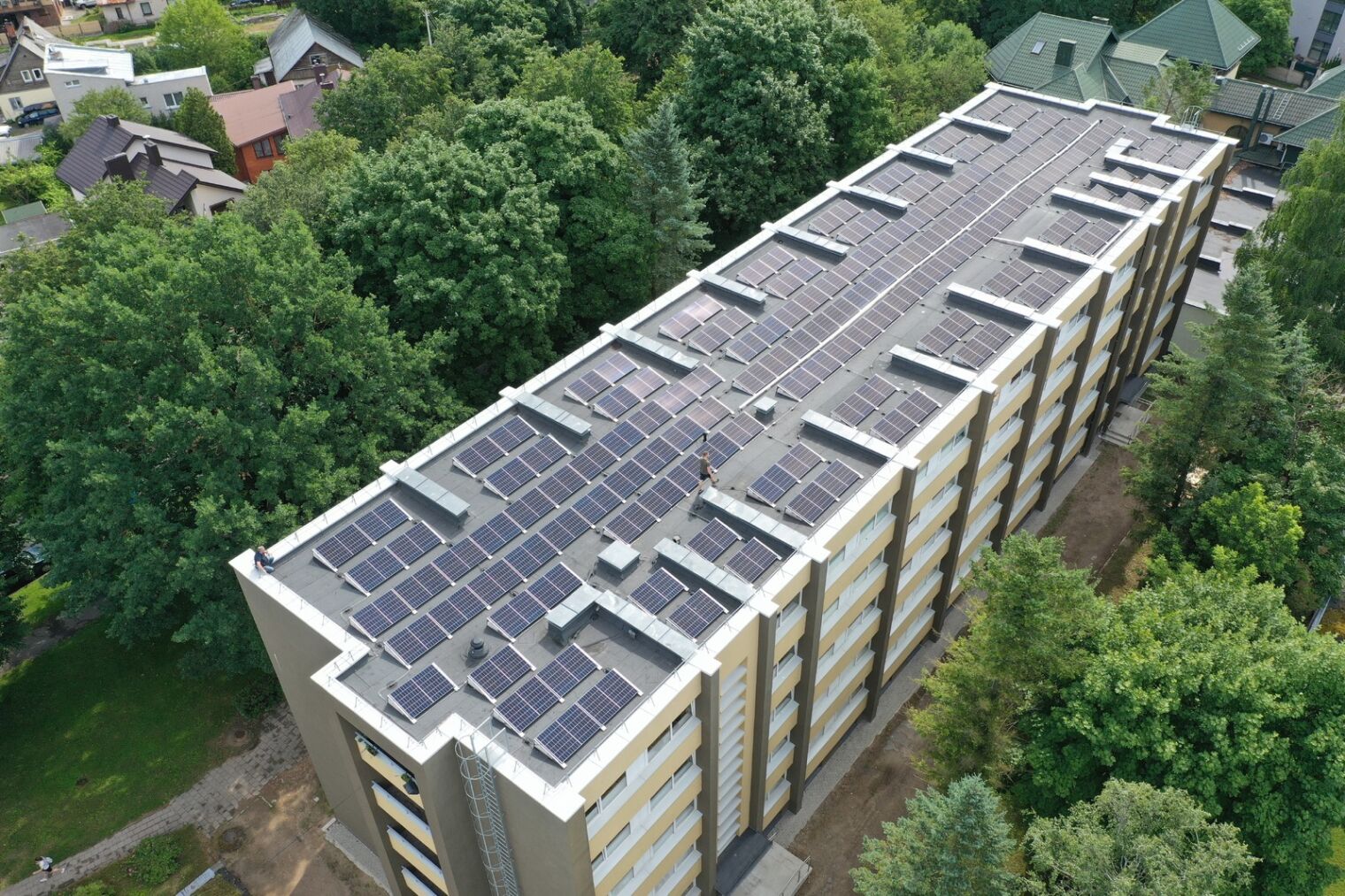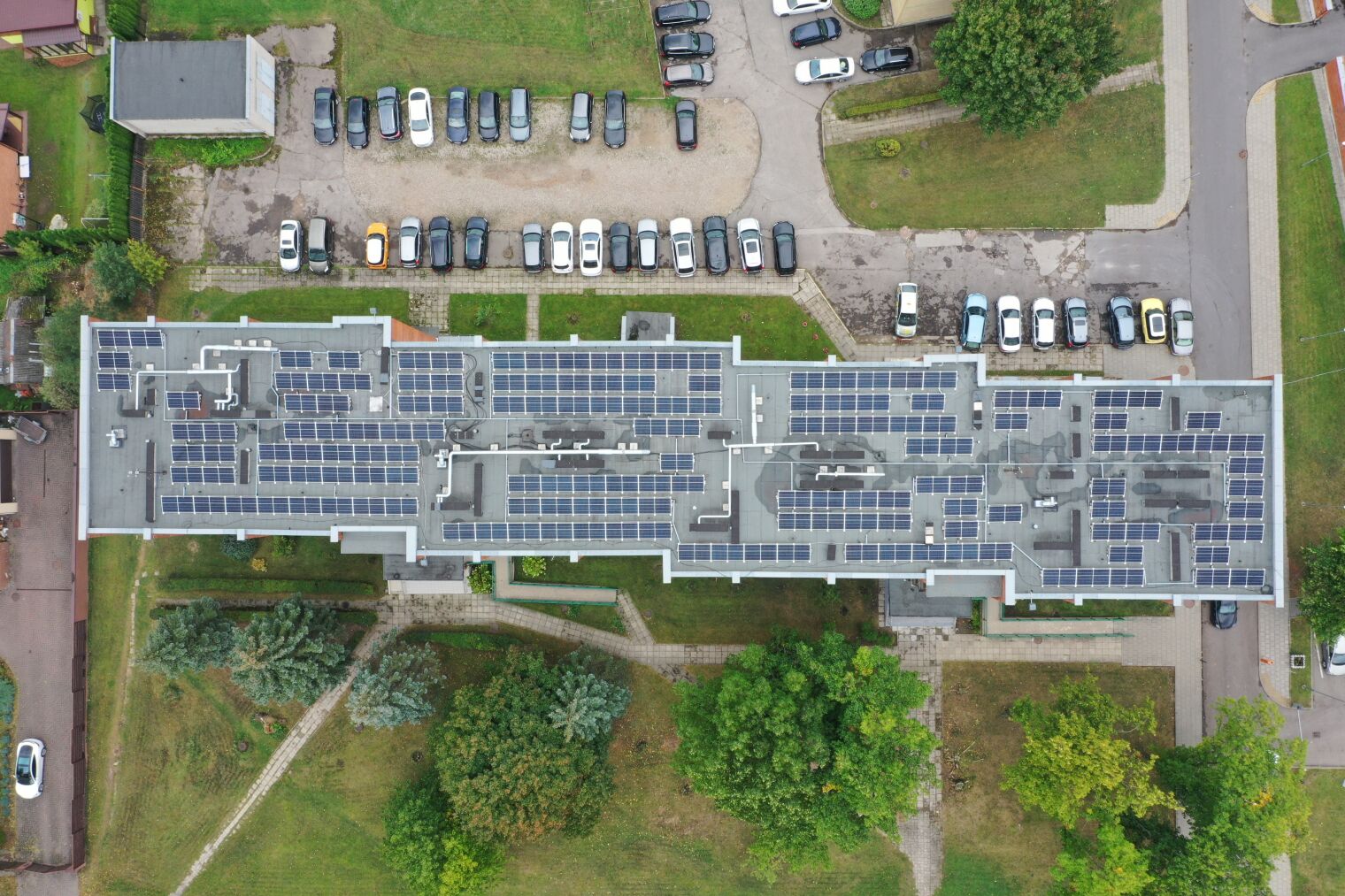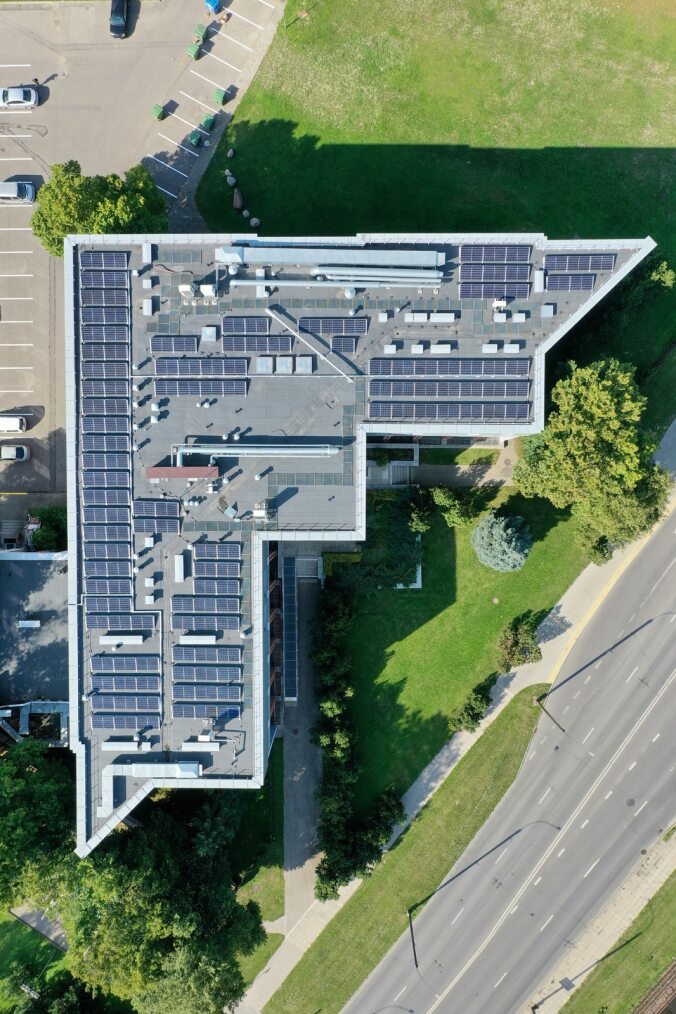Advancing Towards Sustainability: LSMU Implements Solar Power Project

The Lithuanian University of Health Sciences (LSMU) has successfully implemented a solar power system project. Nine University buildings were equipped with the solar power systems as a result of the project. This will enable the generation and consumption of green electricity, contributing to a more sustainable environment.
The rooftop solar power systems, with a total capacity of 648.34 kW, are located on the rooftops of these buildings:
- Institute of Cardiology (Sukilėlių Ave. 15, Kaunas);
- Nursery and Primary School (Žeimenos St. 106, Kaunas);
- 4th Building (Tilžės St. 18, Kaunas);
- 5th Building (Tilžės St. 18, Kaunas);
- 3rd dormitory (V. Kudirkos St. 19, Kaunas);
- 4th dormitory (J. Lukšos – Daumanto St. 6, Kaunas);
- 6th dormitory (Lampėdžių St. 17, Kaunas);
- 7th dormitory (Lampėdžių St. 15, Kaunas);
- 9th dormitory (Sąjungos square 5A, Kaunas).
The obvious benefits of the solar power systems have been emphasised by Algirdas Matusevičius, Head of the Maintenance and Repair Service under the Infrastructure Management Department, who was in charge of the implementation of the project.
“The positive effect was registered as soon as the solar power plants were placed into operation. A few of them, such as the solar power systems on the roof of the 1st first dormitory not only generated enough electricity for their own needs during the sunny period but also accumulated power reserves. Preliminary estimations show that we have reached about EUR 29,300 of savings in less than half a year of operation of the solar power systems,” said A. Matusevičius.
He added that this project contributed to the fulfilment of the strategic objective of LSMU to use the cumulative potential of the University and the hospitals to strengthen human and animal health and improve the health care. For this purpose, the University has been implementing the solutions to conserve natural, energy and other resources and reduce potential pollution. By implementing this project, the University is not only meeting its strategic objectives, but also contributing to the Green Deal goals of the European Union and the Republic of Lithuania.
Laima Matusevičienė, Director of Administration and Finance, also shared that the introduction of various sustainability-targeted solutions will remain in focus in 2024. The upcoming initiatives include the development of bicycle and scooter racks, the installation of charging points for electric vehicles, and the continued renovation of buildings for higher energy efficiency. The University will also continue looking for a Sustainability Ambassador to coordinate and contribute to the creation of a sustainability culture and the achievement of the sustainable development goals at the University. Related information will be published on the University’s Intranet and in newsletters.
The project was implemented using a grant of EUR 51,169.05 provided by the Environmental Projects Management Agency (EPMA). The project funding was provided under the climate mitigation measure “Use of renewable energy resources (solar, wind) for the needs of the state, municipalities, traditional religious communities, religious communities or centres”.



